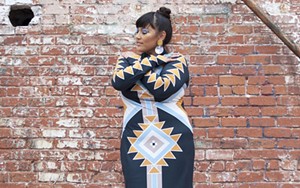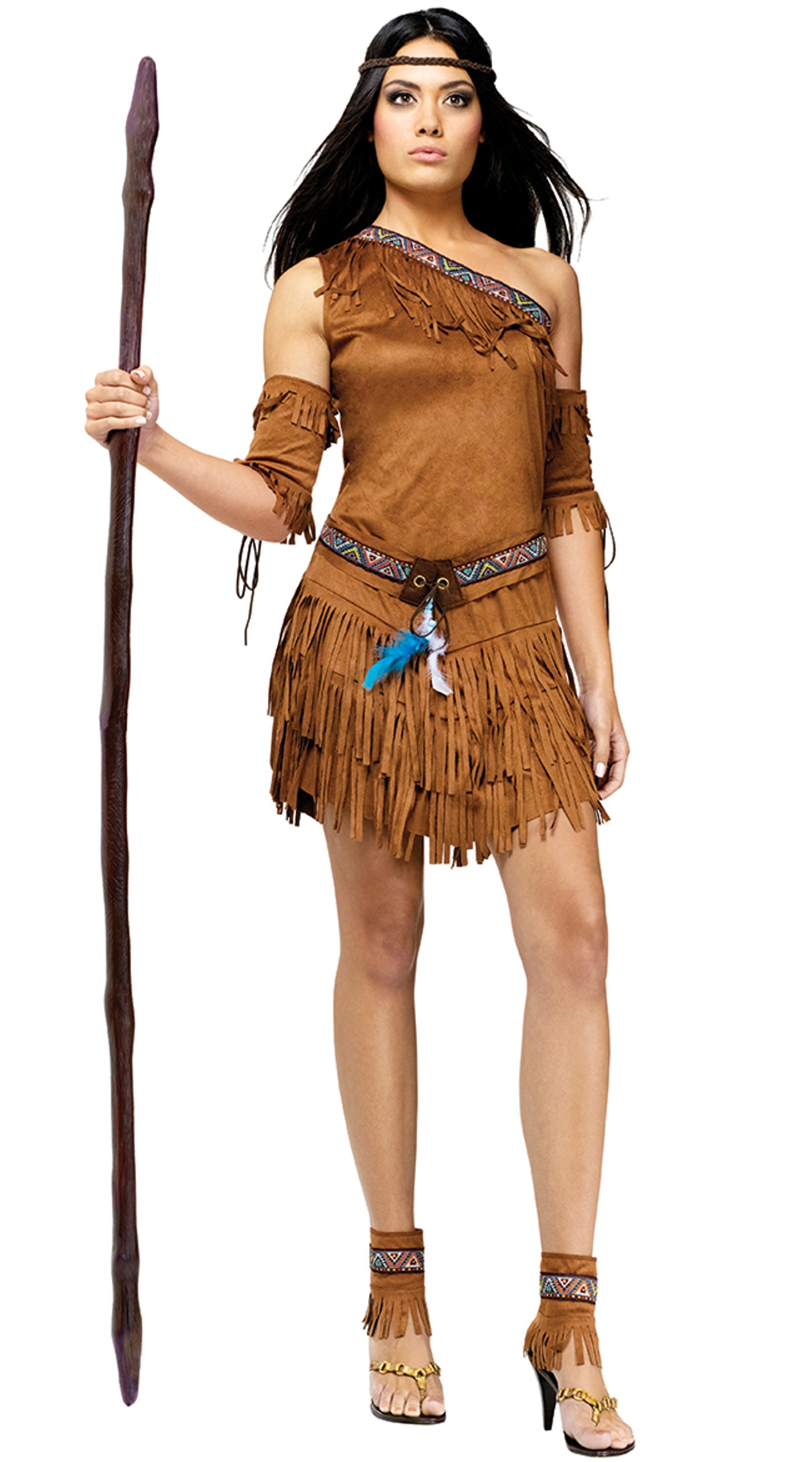For better or worse, we live in an America where major news outlets like USA Today and GQ have to post lists every October about how to pick a Halloween costume that isn't offensive.
This is either a product of mass cultural insensitivity or of an unduly politically correct nation, depending on your confirmation bias.
But one sexy Halloween costume retailer based in Phoenix is ignoring these listicles by creating a market for those looking to choose their own appropriation adventure.
Yandy.com, perhaps best known as the peddlers of your mouth-wateringly sexy hamburger costume, has roughly 44 Native American-esque costumes to choose from on their site. Some sell for up to $99.99 and include accessories such as a headband with feathers and a "Native American-style patch applique."
Yandy has taken some heat for the often-condemned costumes, but admits the sales opportunities are just too lucrative to stop.
They're still adding new styles to their lineup of ensembles, although they don't promote the Native American garments through email newsletters or on social media, Cosmopolitan magazine reported Tuesday.
Yandy told Cosmopolitan the company made $150,000 last year on sexy Native American costumes. The “Native American Sweetheart Costume," featuring an ostrich feather-covered and beaded crop top, is one of their top 10 most popular sellers. The costume and lingerie company has sold thousands of units for each of the three seasons the costume has been available.
Yandy, located at 21615 North Seventh Avenue in Phoenix, didn't answer a call from Phoenix New Times and hasn't yet responded to a request for comment sent through their website.
Jeff Watton, Yandy’s CFO, told that Cosmopolitan the company won't take the costumes off their website until it "gets to the point where there is, I guess, significant demonstrations or it gets to a point of contentiousness that maybe is along the lines of the Black Lives Matter movement, where you have major figures in the sports world going to a war of words with the president, then it's become too hot of an issue.”
For the record, Yandy shot down the idea of a sexy Black Lives Matter costume, Watton told Cosmopolitan.
Meanwhile, the woke people of the internet are showing their dissent for just such costumes.
Joey Montoya, the founder of the Native American Advocacy group Urban Native Era, has been promoting the #IAmNotACostume campaign on social media this month, featuring videos of Indigenous people talking about their experiences with cultural appropriation.
Jaclyn Roessel, the Heard Museum employee who now runs the artistic and cultural consulting firm Grownup Navajo, called the sexualization of Native American women by companies and costume-partygoers "disheartening"

Jaclyn Roessel is a former Heard Museum employee who runs the creative enterprise Grownup Navajo.
Hannah Manuelito
Roessel told New Times the sexualization of Native American women contributes to unusually high statistics of indigenous women being sexually abused.
The Rape, Abuse, and Incest National Network, (RAINN), said Native Americans are twice as likely to experience a rape or sexual assault than all other races.
"At the heart of any cultural appropriation issue is an issue of power and who has the power over the story being told," Roessel said. "By embracing offensive stereotypes and images, we’re erasing the narrative of an entire race and group of people ... This company and others like it aren’t treating native people as human people, and that’s a very big problem."
Roessel says Yandy shouldn't be so flippant about a community so prominent in their base state.
"We support and are very active in the local community," Roessel said of Native Americans in Phoenix. "To disregard that and say, 'Let’s wait until it’s a bigger issue' is wrong. This is actually a very real and urgent issue that our communities are facing."











